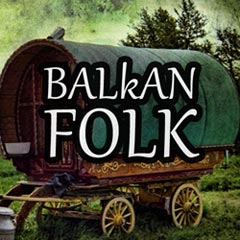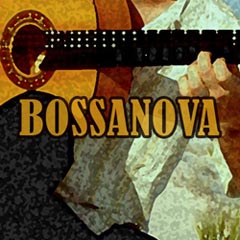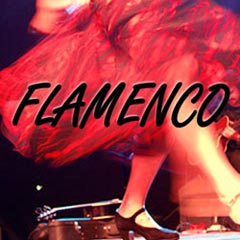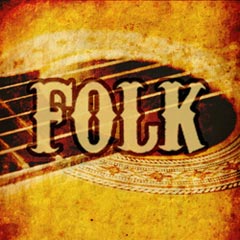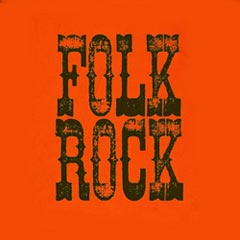Rumba
ON AIR - PROGRAMMING
A cry that comes from the fields , from slavery. It gets free and travels through the Atlantic , takes the Cuban passion, the African percussion, the Andalusia's guitar and the misery of the countryside. A merge born from the history to redeem itself and to flow into an accelerated dance, vibrant, and, finally, free.Rumba is a genre of music characterized by its upbeat rhythm and passionate essence. When you listen to a rumba beat, it's impossible to stay still--the need to dance emerges from within! Singing rumba songs is an excellent way to appreciate the emotions that this musical style inspires. You'll quickly find yourself swaying along with the energetic delivery and often personal lyrics of the tune. It can be soulful and evoke stirring feelings; at the same time, it will invigorate your spirit with its undeniable catchiness. So crank up some spicy rumba music today and share in this unique Latin experience! A playlist with the best rumba songs
The Magnetic Pull of Rumba: A Celebration of Afro-Cuban Music
Imagine a beat so magnetic that it pulls you to the dance floor, and you can't help but move to the rhythm. Now, let's take that beat and infuse it with the passion and emotion of Cuba, the percussion of Africa, the Spanish guitar of Andalusia, and the hardship of the countryside. What you get is the Rumba. This genre of music can evoke a broad spectrum of emotions from its listeners, from soulful to invigorating. With its unique sound and upbeat rhythm, it's no wonder why Rumba has taken the world by storm, and in this blog post, I'm going to tell you why.
Rumba was born out of slavery, with African slaves incorporated their traditional rhythms and dances into the music of their new home, Cuba. Its beginnings were in the sugar cane fields where the drum rhythms, singing, and dancing served as therapy and an escape from the hardships of slavery. Rumba was a voice of the voiceless, an expression of emotions suppressed by oppression. It was an art form that began as an act of survival and evolved into a celebration of freedom.
The music of Rumba wasn't always readily accepted. It was considered a low-class and vulgar genre, but its popularity grew as it reflected the vitality, joy, and passion of the Cuban people. The Rumba takes you on an emotional rollercoaster, with its fast-paced beats and complex rhythms that entice you to move your hips and dance along. The sound is so unique that at first, it might be challenging to recognize the instruments used to create it. The clave, guiro, and congas are part and parcel of the Rumba's instrumentation, while the vocals are often full of deep emotion and personal stories.
Rumba's impact on the world of music can be felt across various genres. It's an influential style that continues to inspire musicians and music lovers alike. The lively rhythm of Rumba has influenced the evolution of other forms such as salsa, which first appeared in the 1960s. Rumba has also brought people together, transcending borders, and creating a sense of community. It's a genre of music that breaks down barriers, uniting people in a shared love of music and dance.
As we celebrate the Rumba, it's essential to recognize the great artists who have shaped this genre throughout history. We can't mention Rumba without talking about Celia Cruz, who is often referred to as the Queen of Salsa. Her powerful voice and infectious energy brought the genre to the world stage, earning her several accolades, including four Latin Grammy Awards. Another great name in Rumba music is Compay Segundo, considered one of Cuba's most influential musicians. His unique voice and guitar playing style created a new sound that captivated audiences worldwide.
In conclusion, the Rumba is a genre of music that evokes passion and emotion like no other. It's a fusion of cultures that showcases the best that each has to offer, creating something that is unique and vibrant. Rumba's impact on music is undeniable, and its influence can be felt across many genres worldwide. So, turn up the music, let the beat take hold of you, and let the Rumba lead you to the dance floor. In doing so, you will become part of a rich history and a movement that celebrates the power of music to connect people.
The Magnetic Pull of Rumba: A Celebration of Afro-Cuban Music
Imagine a beat so magnetic that it pulls you to the dance floor, and you can't help but move to the rhythm. Now, let's take that beat and infuse it with the passion and emotion of Cuba, the percussion of Africa, the Spanish guitar of Andalusia, and the hardship of the countryside. What you get is the Rumba. This genre of music can evoke a broad spectrum of emotions from its listeners, from soulful to invigorating. With its unique sound and upbeat rhythm, it's no wonder why Rumba has taken the world by storm, and in this blog post, I'm going to tell you why.
Rumba was born out of slavery, with African slaves incorporated their traditional rhythms and dances into the music of their new home, Cuba. Its beginnings were in the sugar cane fields where the drum rhythms, singing, and dancing served as therapy and an escape from the hardships of slavery. Rumba was a voice of the voiceless, an expression of emotions suppressed by oppression. It was an art form that began as an act of survival and evolved into a celebration of freedom.
The music of Rumba wasn't always readily accepted. It was considered a low-class and vulgar genre, but its popularity grew as it reflected the vitality, joy, and passion of the Cuban people. The Rumba takes you on an emotional rollercoaster, with its fast-paced beats and complex rhythms that entice you to move your hips and dance along. The sound is so unique that at first, it might be challenging to recognize the instruments used to create it. The clave, guiro, and congas are part and parcel of the Rumba's instrumentation, while the vocals are often full of deep emotion and personal stories.
Rumba's impact on the world of music can be felt across various genres. It's an influential style that continues to inspire musicians and music lovers alike. The lively rhythm of Rumba has influenced the evolution of other forms such as salsa, which first appeared in the 1960s. Rumba has also brought people together, transcending borders, and creating a sense of community. It's a genre of music that breaks down barriers, uniting people in a shared love of music and dance.
As we celebrate the Rumba, it's essential to recognize the great artists who have shaped this genre throughout history. We can't mention Rumba without talking about Celia Cruz, who is often referred to as the Queen of Salsa. Her powerful voice and infectious energy brought the genre to the world stage, earning her several accolades, including four Latin Grammy Awards. Another great name in Rumba music is Compay Segundo, considered one of Cuba's most influential musicians. His unique voice and guitar playing style created a new sound that captivated audiences worldwide.
In conclusion, the Rumba is a genre of music that evokes passion and emotion like no other. It's a fusion of cultures that showcases the best that each has to offer, creating something that is unique and vibrant. Rumba's impact on music is undeniable, and its influence can be felt across many genres worldwide. So, turn up the music, let the beat take hold of you, and let the Rumba lead you to the dance floor. In doing so, you will become part of a rich history and a movement that celebrates the power of music to connect people.
What are you thinking about?

